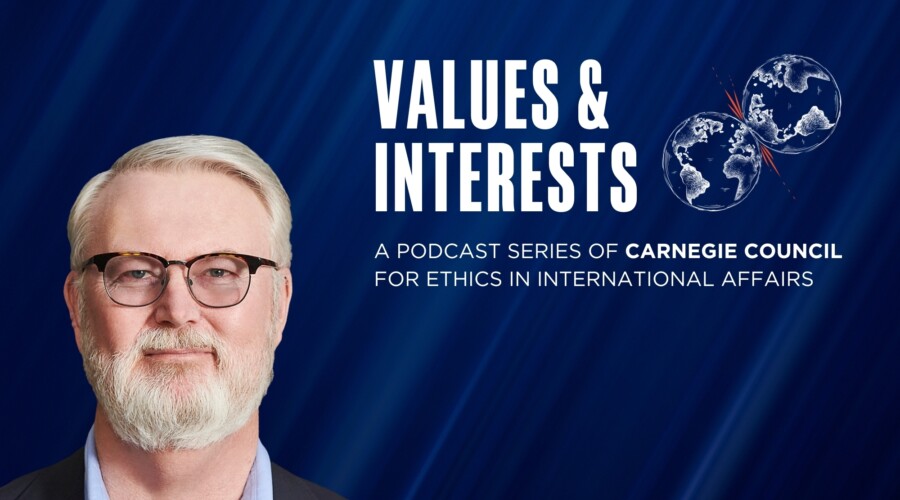This Global Ethics Corner is part of the Council's second annual SEPTEMBER
SUSTAINABILITY MONTH, which kicks off a year of events and resources
on sustainability. Generous funding of the Carnegie Council's 2010-2011 sustainability
programming has been provided by Hewlett-Packard and by Booz & Company.
Three-quarters of the world's fish stocks are in distress and many fisheries could
collapse by midcentury, reports the UN.
In our manufactured world, wild species perhaps deserve special protection,
first and foremost as a potentially sustainable resource.
We're a hungry world, nearing 7 billion today and peaking around 9 billion
in a few decades. Access to quality protein is an ethical and developmental
issue. Fish account for 20 to 30 percent of the total animal protein consumed
in many poorer Sub-Saharan and Southeast Asian countries.
Additionally, all nations are not equal maritime powers. Some can't enforce
commercial laws in their territorial waters. While industrial fishing is economically
cost effective, industrial boats scour coastal waters leaving little behind
for the local people who depend on the seas.
But, fish stocks are the real losers. Undesirables, noncommercial species,
and juveniles are unintentionally caught and dumped back dead. This bycatch
is especially bad in the shrimp industry, where it routinely accounts for 80
percent of the haul.
Can we reconfigure the fishing industry for greater food security and ecological
sustainability? Will doing so meet the growing demand for protein?
Conservation zones present a reliable solution, as does banning the trade in
threatened species. Aquaculture is on the rise and also has promise. Yet, it
introduces problems of breeding, disease, and pollution, and requires fishmeal
to fatten the farmed fish.
Should we ban industrial fishing or regulate it for sustainable output? Can
farmed fish make up the difference? Furthermore, who will police the oceans?
What do you think?
By Evan
O'Neil and William Vocke
For more information see:
Conference
on saving world's fish stocks opens at UN Headquarters
UN News Centre, May 24, 2010.
Photo Credits in order of AppearanceSee Wah
ChengJohn
BostockLamoixJavier
D.Elemento
HumanoB
KJason
TabariasMichele
MolinariDoug
DuCapTorySonyaAlphaQuinn
Dombrowskieutrophication&hypox
iaNorsk
Havbrukssenter 

